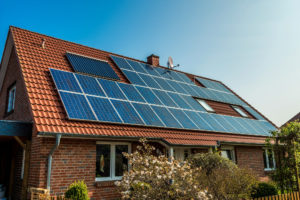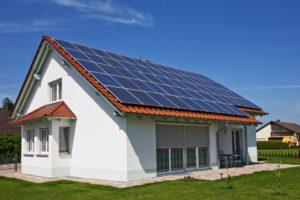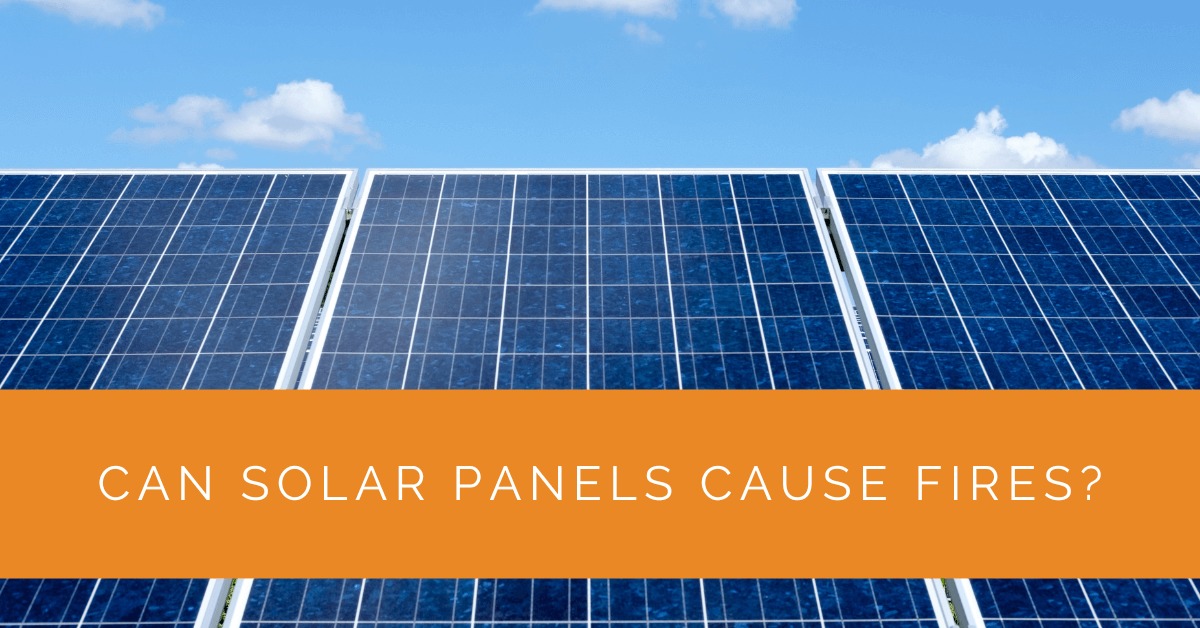Solar panels have gained popularity as a sustainable energy solution. However, concerns about fire risks associated with solar panel installations have emerged. In this article, we debunk myths and provide insights into the fire risk factors, installation practices, maintenance, and fire prevention measures to ensure the safety of solar panel systems.
Contents
- 1 Key Takeaways
- 2 Fire Risk Factors with Solar Panels
- 3 Proper Installation and Fire Prevention
- 4 Maintenance and Monitoring for Fire Safety
- 5 Firefighter Safety and Solar Panel Fires
- 6 Mitigating the Risk of Solar Panel Fires
- 7 Public Awareness and Education
- 8 Case Study: Ensuring Fire Safety in Solar Panel Installations
- 9 Expert Insights From Our Solar Panel Installers About Fire Risks Associated with Solar Panels
- 10 Experience Solar Excellence with Us!
- 11 Conclusion
Key Takeaways
- Solar panels are at low risk of causing fires when installed and maintained properly.
- Proper installation, regular maintenance, and adherence to safety guidelines are essential for minimizing fire risks associated with solar panels.
- Public awareness, education, and collaboration between homeowners, solar industry professionals, and fire departments are crucial for ensuring solar panel systems’ safe and responsible adoption.
Fire Risk Factors with Solar Panels
Solar panels are generally safe, but understanding the factors that can contribute to fire risks is important for ensuring their safe operation. Several key factors can increase the potential for fires in solar panel systems:
- Module Defects: While rare, defects can lead to malfunctioning panels that generate excessive heat. This can result in electrical arcing or hot spots, increasing the fire risk. Manufacturers employ rigorous quality control measures to minimize defects, but occasional issues can arise.
- Cable Issues: Poorly installed or damaged cables can pose a fire hazard. Incorrect cable sizing, improper connections, or insulation damage can cause short circuits or overheating. These issues can lead to electrical arcing and potentially start a fire.
- DC Isolators: DC isolators are crucial components in solar panel systems, allowing for safe isolation during maintenance or emergencies. However, faulty or incorrectly installed isolators can fail to disconnect the system properly, leading to the potential for electrical faults and fires.
To mitigate these fire risk factors, it is crucial to ensure proper installation, regular maintenance, and adherence to safety standards throughout the lifespan of the solar panel system.
Proper Installation and Fire Prevention
Proper installation practices are essential to minimize fire risks associated with solar panels. Here are key considerations for safe installation and fire prevention:
- Professional Solar Installer: Engaging a qualified and experienced solar installer is crucial for ensuring proper system design and installation. Certified installers are knowledgeable about fire safety measures and follow industry best practices.
- Compliance with Electrical and Fire Safety Codes: Adhering to local electrical and fire safety codes is essential. These codes outline requirements for proper grounding, cable management, and electrical system design, ensuring the safe operation of the solar panel system.
- Secure Mounting and Ventilation: Properly securing solar panels to rooftops or mounting structures prevents the risk of dislodgement during extreme weather conditions. Sufficient ventilation around the panels helps dissipate heat and minimize the chance of overheating.
- Correct Cable Management: Ensuring proper cable management includes using appropriate cable sizes, protecting cables from physical damage, and securely fastening them to prevent potential electrical faults.
- Grounding and Surge Protection: Implementing effective grounding and surge protection mechanisms safeguards the system against lightning strikes and electrical surges, reducing the risk of fires caused by external factors.
By adhering to these installation practices, solar panel systems can be installed safely, minimizing the risk of fire incidents and ensuring long-term fire prevention.

Maintenance and Monitoring for Fire Safety
Regular maintenance and monitoring are essential for fire safety and the optimal performance of solar panel systems. Here are key aspects to consider:
- Periodic Inspections: Regular inspections by certified professionals help identify potential fire hazards, such as damaged modules, loose connections, or deteriorating insulation. Inspections should encompass all components, including panels, cables, connectors, and inverters.
- Thermal Imaging and Hot Spot Detection: Utilizing thermal imaging technology during inspections can detect hot spots, which may indicate malfunctioning cells or electrical faults. Prompt identification of hot spots enables timely maintenance and prevents potential fire risks.
- Monitoring System Performance: Implementing a monitoring system allows continuous performance tracking, ensuring that any anomalies or issues are promptly identified. Monitoring can help detect abnormal patterns, such as sudden drops in output or irregular voltage fluctuations, indicating potential fire hazards.
- Inverter Maintenance: Inverters, critical components of solar panel systems, require regular maintenance. This includes checking for proper ventilation, verifying electrical connections, and ensuring optimal performance. Inverter malfunctions can lead to electrical faults, so timely maintenance is crucial to prevent fire incidents.
By conducting regular inspections, utilizing advanced monitoring systems, and ensuring proper maintenance, solar panel owners can enhance fire safety, extend system lifespan, and maximize the overall performance of their solar panel systems. Regular maintenance and monitoring help prevent potential fire hazards and ensure the system operates efficiently, maximizing energy production and cost savings.
Firefighter Safety and Solar Panel Fires
Firefighters play a vital role in responding to emergencies, including incidents involving solar panel systems. Educating firefighters about the unique considerations and potential hazards associated with solar panels is important. Here are key aspects to address firefighter safety when dealing with solar panel fires:
- Training and Education: Providing comprehensive training to firefighters about solar panel systems helps them understand the technology, components, and associated risks. This includes information on electrical systems, shutdown procedures, and potential hazards during firefighting operations.
- Collaborative Partnerships: Foster collaboration between fire departments and solar industry professionals to exchange knowledge, share best practices, and develop standardized procedures for addressing solar panel-related emergencies. This collaboration enhances the overall response and ensures the safety of both responders and the public.
- Emergency Response Protocols: Developing specific protocols for responding to solar panel fires helps firefighters effectively manage such incidents. Protocols should include guidelines for safe shutdown procedures, isolating the system, and handling potential electrical hazards. Clear communication between responders and solar panel system owners or installers is crucial for a coordinated and efficient response.
- Awareness of Disconnect Locations: Firefighters should know the location of DC disconnect switches or other isolation mechanisms to shut down the solar panel system during emergencies effectively. This knowledge allows them to isolate the power source and minimize the risk of electrical hazards while extinguishing the fire.
By providing appropriate training, fostering collaboration, and establishing clear protocols, firefighters can respond to solar panel-related emergencies safely and effectively, minimizing risks to responders and the surrounding community.

Mitigating the Risk of Solar Panel Fires
Mitigating the risk of solar panel fires requires a proactive approach that includes design considerations and the implementation of fire safety measures. Here are some strategies to reduce the fire risk associated with solar panel systems:
- Fire-Resistant Materials: Opt for fire-resistant materials during the installation of solar panels. This includes selecting modules with fire-rated backsheets and using fire-resistant cable insulation. Choosing materials with high fire resistance helps minimize the potential for ignition and propagation of fires.
- Component Selection: Selecting components with a focus on safety is crucial. Use high-quality cables, connectors, and junction boxes that comply with recognized safety standards. Investing in components from reputable manufacturers ensures better fire resistance and system reliability.
- Rapid Shutdown Systems: Implement rapid shutdown systems that allow for quick and safe deactivation of the solar panel system. These systems can isolate the DC circuits, reducing the risk of electrical arcing and potential fire incidents during maintenance, emergencies, or when responders need to disconnect the power source.
- Fire Barrier Installation: Consider installing fire barriers, such as non-combustible materials or fire-resistant insulation, in spaces where solar panels are mounted. These barriers help prevent the spread of fires in case of a module fire, reducing the potential damage to the building or surrounding structures.
- Regular System Inspections: Conduct regular inspections by qualified professionals to ensure the integrity of the solar panel system. Inspections should encompass all components, including modules, cables, connectors, and inverters. Prompt identification and resolution of any issues minimize the risk of fire incidents.
By implementing these mitigation strategies, the fire risk associated with solar panel systems can be significantly reduced, ensuring the continued safety and reliability of the installation.
Public Awareness and Education
Promoting public awareness and education about solar panel fire safety is crucial to ensure responsible and informed ownership of solar systems. Here are key areas to focus on:
- Homeowner Education: Educate homeowners about fire prevention measures, such as regular system inspections, proper maintenance, and prompt reporting of any issues
- Recognizing Signs of Potential Fire Hazards: Provide homeowners with information on identifying potential fire hazards related to solar panel systems. This includes being vigilant for signs of module damage, cable issues, or abnormal performance that may indicate a potential fire risk.
- Public Awareness Campaigns: Launch public awareness campaigns to educate the general population about the safety and benefits of solar panel systems. These campaigns can emphasize the low incidence of solar panel fires and highlight the importance of proper installation, maintenance, and adherence to safety guidelines.
- Workshops and Training: Organize workshops and training sessions for homeowners, solar panel installers, and the general public to enhance their understanding of fire safety measures. These sessions can cover system maintenance, emergency procedures, and fire prevention best practices.
- Collaboration with Fire Departments: Collaborate with solar industry professionals, fire departments, and local authorities to develop informational materials and resources. These can include guidelines, brochures, and online resources that provide clear instructions on fire safety measures and emergency response protocols.
- Inclusion in Home Inspection Reports: Encourage home inspectors to include assessments of solar panel systems in their reports. This can help raise awareness among potential homebuyers about the importance of solar panel fire safety and the need for proper maintenance.
Individuals can make informed decisions when installing and maintaining solar panel systems by raising public awareness and providing education on solar panel fire safety. This collective effort contributes to a safer and more responsible adoption of solar energy.
Case Study: Ensuring Fire Safety in Solar Panel Installations
Background
Solar Panels Network USA is dedicated to providing safe and reliable solar energy solutions. We recently worked with a large commercial property owner concerned about the fire risks associated with installing a new solar panel system on their facility.
Project Overview
The commercial property owner, Mr. Johnson, approached us to install a solar panel system on his building. With the facility’s high energy demands, the client wanted to ensure that the installation adhered to the highest safety standards to mitigate any fire risks.
Implementation
Site Assessment and Risk Evaluation
Our team conducted a thorough site assessment to evaluate potential fire risks. This included inspecting the roof structure, electrical systems, and identifying any pre-existing issues that could pose a hazard.
Customized Safety Plan
Based on the assessment, we developed a customized safety plan for the installation. This plan incorporated the latest industry standards and best practices for fire prevention. Key elements included:
- High-Quality Materials: We selected high-quality, fire-resistant materials, including cables with superior insulation and durable, fire-rated back sheets for the solar panels.
- Professional Installation: Certified installers handled the installation, ensuring proper cable management, secure mounting, and compliance with all local electrical and fire safety codes.
- Advanced Monitoring Systems: We integrated advanced monitoring systems to continuously track the performance of the solar panel system. This allowed for real-time detection of anomalies that could indicate potential fire risks, such as hot spots or irregular voltage patterns.
Training and Education
We provided comprehensive training for the facility’s maintenance team on regular inspection procedures and emergency shutdown protocols. Additionally, we coordinated with the local fire department to ensure they were familiar with the system’s layout and emergency response procedures.
Results
Safe and Efficient Installation
The solar panel system was installed without incident, adhering to the highest safety standards. The use of high-quality materials and professional installation minimized fire risks and ensured system reliability.
Enhanced Monitoring and Maintenance
The advanced monitoring systems implemented allowed for continuous performance tracking and early detection of potential issues. Regular inspections and maintenance by the facility’s trained team further ensured the system’s safety and efficiency.
Informed and Prepared First Responders
Collaboration with the local fire department ensured that first responders were well-prepared to handle any emergencies involving the solar panel system. This proactive approach enhanced overall safety and response capabilities.
Summary
This case study highlights the importance of a comprehensive approach to fire safety in solar panel installations. By conducting thorough assessments, using high-quality materials, ensuring professional installation, and providing ongoing training and monitoring, the fire risks associated with solar panels can be effectively minimized. Solar Panels Network USA remains committed to promoting safe and sustainable energy solutions, ensuring the safety and satisfaction of our clients.
Expert Insights From Our Solar Panel Installers About Fire Risks Associated with Solar Panels
Proper installation is key to minimizing fire risks with solar panels. Ensuring correct cable management, secure mounting, and adherence to safety standards can significantly reduce potential hazards.
Senior Solar Installer
Regular maintenance and inspections are crucial for preventing fires in solar panel systems. Identifying and addressing issues such as damaged cables or faulty connections early can help maintain system safety and performance.
Solar Maintenance Specialist
Educating homeowners and first responders about solar panel systems is essential for safety. Clear understanding and communication of shutdown procedures and potential risks can enhance emergency response effectiveness.
Solar Safety Consultant
Experience Solar Excellence with Us!
Trust in Solar Panels Network USA, where our seasoned experts deliver top-quality solar solutions for homes and businesses nationwide. With a legacy of countless successful installations and a commitment to sustainable energy, we’re your reliable partner in the solar journey. Ready for a brighter, eco-friendly future? Call us now at (855) 427-0058 and harness the power of the sun!
Conclusion
Understanding the fire risk factors associated with solar panels is crucial for ensuring their safe operation. By focusing on proper installation practices, regular maintenance, monitoring, firefighter safety, and public awareness, the potential for solar panel fires can be minimized. We can create a safer environment for widely adopted solar panel systems through collaboration between industry professionals, homeowners, fire departments, and government agencies. By promoting fire safety and responsible practices, we can maximize the benefits of solar energy while ensuring the continued safety of individuals and their properties.
About the Author
Solar Panels Network USA stands at the forefront of solar energy solutions, driven by a team of seasoned solar engineers and energy consultants. With over decades of experience in delivering high-quality solar installations and maintenance, we are committed to promoting sustainable energy through customer-centric, tailored solutions. Our articles reflect this commitment, crafted collaboratively by experts to provide accurate, up-to-date insights into solar technology, ensuring our readers are well-informed and empowered in their solar energy decisions.

